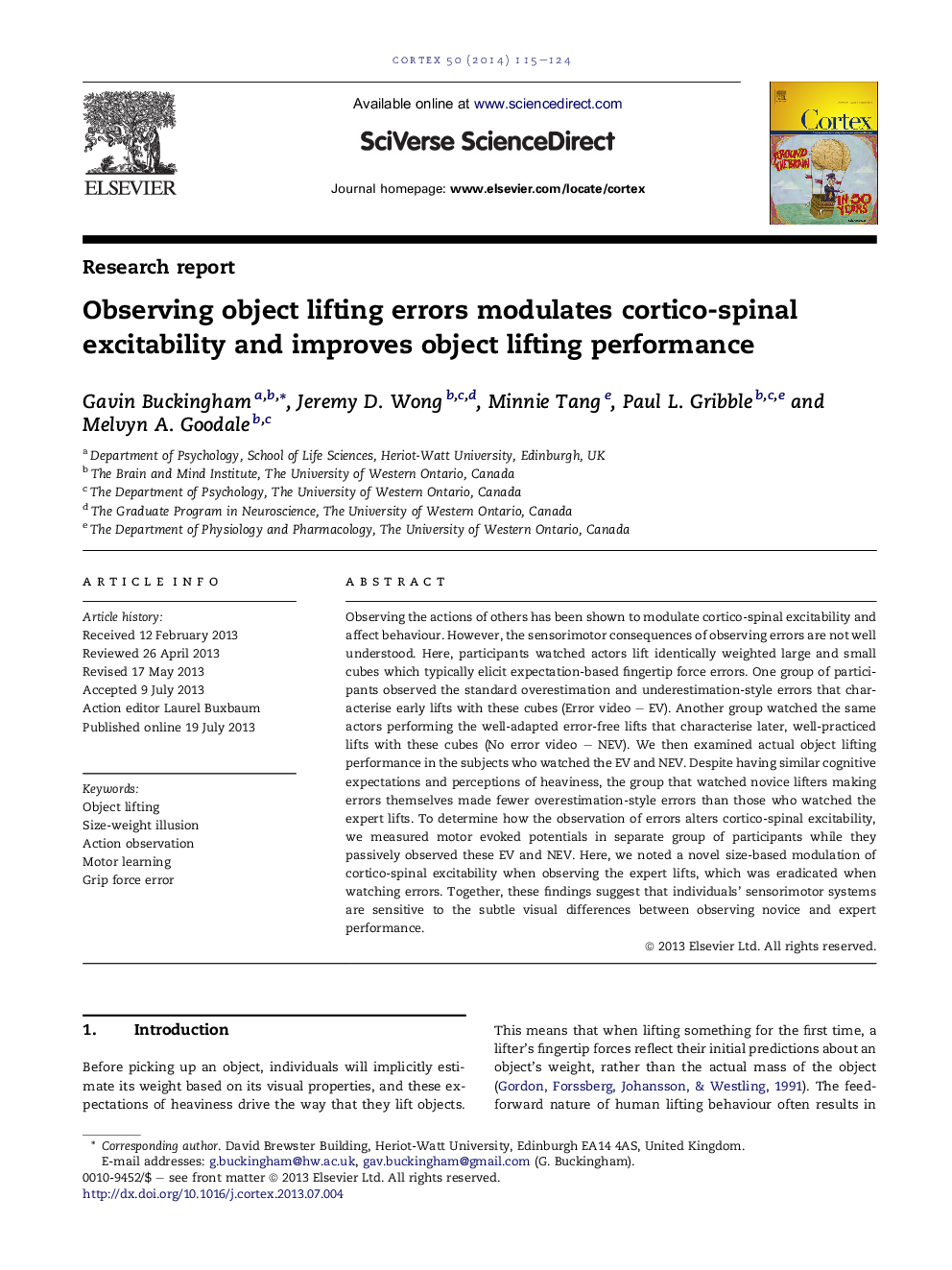| Article ID | Journal | Published Year | Pages | File Type |
|---|---|---|---|---|
| 7316105 | Cortex | 2014 | 10 Pages |
Abstract
Observing the actions of others has been shown to modulate cortico-spinal excitability and affect behaviour. However, the sensorimotor consequences of observing errors are not well understood. Here, participants watched actors lift identically weighted large and small cubes which typically elicit expectation-based fingertip force errors. One group of participants observed the standard overestimation and underestimation-style errors that characterise early lifts with these cubes (Error video - EV). Another group watched the same actors performing the well-adapted error-free lifts that characterise later, well-practiced lifts with these cubes (No error video - NEV). We then examined actual object lifting performance in the subjects who watched the EV and NEV. Despite having similar cognitive expectations and perceptions of heaviness, the group that watched novice lifters making errors themselves made fewer overestimation-style errors than those who watched the expert lifts. To determine how the observation of errors alters cortico-spinal excitability, we measured motor evoked potentials in separate group of participants while they passively observed these EV and NEV. Here, we noted a novel size-based modulation of cortico-spinal excitability when observing the expert lifts, which was eradicated when watching errors. Together, these findings suggest that individuals' sensorimotor systems are sensitive to the subtle visual differences between observing novice and expert performance.
Keywords
Related Topics
Life Sciences
Neuroscience
Behavioral Neuroscience
Authors
Gavin Buckingham, Jeremy D. Wong, Minnie Tang, Paul L. Gribble, Melvyn A. Goodale,
